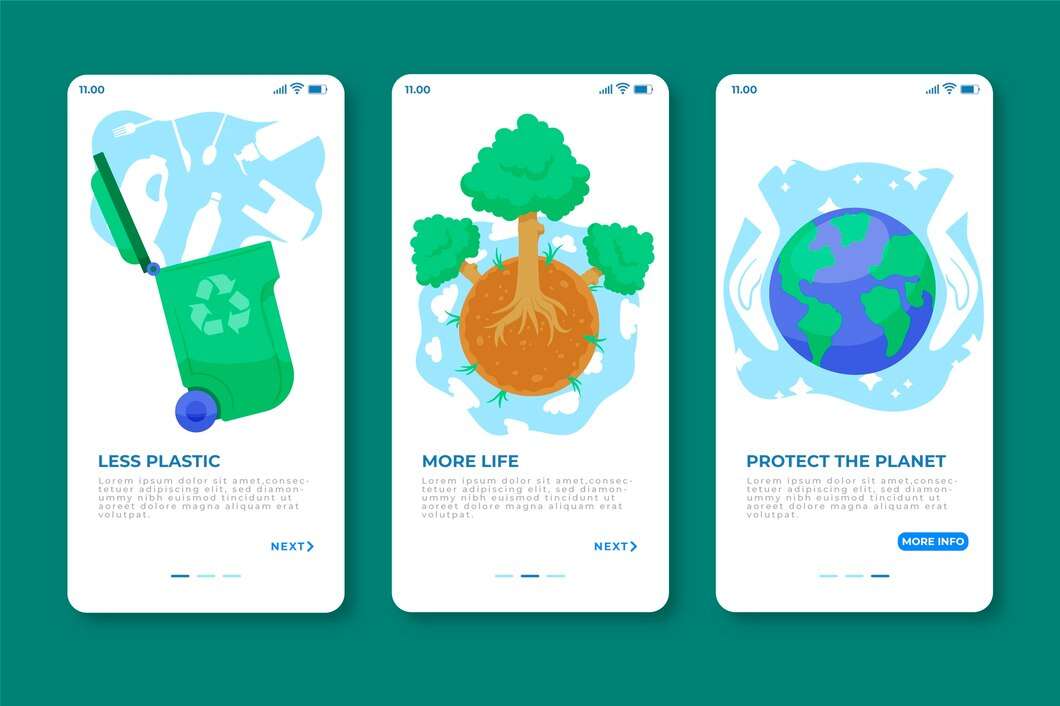Efficiency in Managing Roll-Off Containers: Roll-off Container Software

At a time when the waste management sector has continuously generated massive quantities of waste from construction, demolition, and large-scale clean-up exercises, it has equally been imperative to manage such waste effectively. These have spurred initiatives in managing roll-off containers with this task. Having said that, management of these containers to ensure efficiency in handling materials is complex. It involves tracking the location of the containers adequately enough to assure effective pick-up and schedule the drop-off task. This is where Roll-Off Container Software comes into play. It does so with the help of automated and streamlined roll-off container operations to aid waste management companies in improving efficiency, cutting costs, enhancing customer satisfaction, and more.
The Role of Roll-Off Containers in Waste Management
Roll-off containers are large, open-top containers normally used in the transportation of large amounts of waste materials, such as the remains of construction and industries, as well as large household items. It is removed from the truck by merely rolling off and is left on-site until filled, at which time it is taken off and disposed of, possibly recycled.
Due to their size and the nature of the waste that they can accommodate, roll-off container coordination really needs to be very precise. Every container needs to be tracked for location and status, arranged for timely pickups and drop-offs, and planned for effective utilization. This is hard work without the right gear and equipment and makes a lot of wasted man-hours ineffective organizing.
Roll-Off Container Software is one of the specialized Waste Collection Software devised to manage the logistics of the Roll-Off Containers. The software provides real-time visibility and control of the operation to a waste management business by automating most roll-off container management tasks.
Key Features of Roll-off Container Software
Key features of roll-off container software typically include a real-time tracking feature so that there is visibility into container locations, availability, and status.
- Scheduling and Dispatching: The software will automatically schedule and dispatch container drop-off and pickup for optimal routing.
- Inventory Management: Track container inventories to fulfill appropriate container at the right time and location.
- Billing and Invoicing: Work in unison with the firm’s portfolio billing system to properly identify the invoice utilizing container usage.
- Customer Management: Tools to manage customer data, order processing, and communication.
The roll-off container software is aimed at centralizing and automating these functions, thereby helping in the proper management of the waste by the firms, hence better operational efficiency, translating to increased profits.
Benefits of Roll-Off Container Software
1. Operational Effectiveness
Indeed, operational efficiency is at the forefront with roll-off container software. The software somewhat does most of the manual management for roll-off containers, like tracking the location of containers, scheduling pickups, and saving in lots of time creating invoices. This automation cuts the need for manual input, which often bears various risks of errors, and frees up the staff to concentrate on the more strategic kind of tasks.
By interfacing with waste collection software, route optimization for container pickup and drop-off easily becomes certain. With route optimization, fuel usage and time spent on the road are reduced. Reduced operational costs and increased service delivery. With route optimization, customers would always get their containers at the right time.
Customer satisfaction is the key to the nature of this industry: waste management—that too, timely and reliable service. Roll-off container software allows waste management companies to stick to these customers’ expectations by updating in real time about container availability, time for services, and billing information.
The available information can be easily accessed by the customer through online portals or mobile apps to track the status of their containers, request services, and view invoices. High level transparency and accessibility results in high customer satisfaction and loyalty.
2 Accurate Billing and Revenue Management
Waste management is such a low-margin business that it has to maintain its profitability. The roll-off container software systems can interconnect the billing system and produce accurate billing based upon the actual usage of containers, without errors and omissions which lead to disputes in billing.
The software can also support several billing models, including flat-rate or pay-per use billing, which helps firms be enabled to provide flexible pricing options to their clients. The need to keep invoices accurate and timely means that roll-off container software does a very effective job in assisting these waste management firms to control revenue.
3. Effective Inventory Management
Maintaining an inventory of roll-off containers is a hard task; however, it’s very hard for big waste management companies that have anything from hundreds to thousands of containers. This software for roll-off containers provides real-time visibility into container inventory, enabling companies to continuously monitor container availability, usage, and condition.
This information will assist companies in ensuring that containers are available in the right place and at the right time, ensuring all manner of risks to service delivery are mitigated and, in turn, waste of time, money, and effort are either minimized or eliminated. What’s more, the software will also ensure that the requirements for container maintenance are reminded and therefore maintained and that the software reduces the chance of breaking down, thus ensuring that service delivery is not brought to a halt.
4. Enhanced Communication and Coordination
Effective management of roll-off containers can best be accomplished with effective communication and coordination, particularly across various sites, customers, and the service requests raised. The roll-off container software will consolidate the many different messaging forms that marketing sends and centralizes them in one area, processing all from customer orders and service requests to in-house management of coordinated activities.
Because this communication is centralized, everybody is in sync about the information; hence, miscommunication or any lapses in service requests are avoided. More than that, coordination between dispatchers, drivers, and customers is seamless, resulting in smooth operations and quality service.
5. Data-Driven Decision-making
Data is a powerful resource to make better decisions in this industry for the improvement of business processes dealing with wastes. The roll-off container software collects and analyzes information about container usage, customer behavioral information, and operational efficiency, bringing out valuable insight that propels the business to further heights in continuous improvement.
For example, by analyzing container usage pattern data, companies can pinpoint the various opportunities for optimizing container allocation, reducing idle time, and improving route efficiency. Similarly, the data for consumer behavior shall guide the formulation of price strategies, service offerings, and customer retention efforts.

Waste Collection Software Integration
Roll-off container software is further integrated with other waste collection software applications to provide an integrated, single entity for the management of segregation, collection, and disposal of waste in a profitable manner. Such integration empowers the waste management company to have control of roll-off containers in one system but still supports all other functionalities that are associated with other forms of collection services, like curbside pickup.
Holistic View of Operations: Companies are able to develop a holistic view of their waste collection operations to improve coordination and resource allocation.
- Enhanced Route Optimization: With integrated data for roll-off containers and others in waste collection, companies can optimize service routes more efficiently, which eventually reduces the cost and enhances operational service for all.
- Powerful Reporting and Analytics: Integrated systems provide enhanced reporting and analytics functions that allow for effective performance tracking through trend monitoring and data-driven decisions.
- Scalability to grow: As business grows in waste management services, integrated systems will grow along with its growth in terms of added new businesses, new service locations, and new customers. It should be flexible and future-proof. The Future of Roll-off Container Management
The software of a rolloff container is deemed to grow even more sophisticated and be associated with artificial intelligence, machine learning, and the Internet of Things. It would be empowered with predictive analytics, automatic decision-making, and real-time surveillance of conditions associated with the container, which makes the management of rolloff containers even more effective and efficient.
For example, IoT enabled containers can monitor the fill level in real-time. This way, a company could ensure an optimal pickup that anticipates actual use of containers, instead of pre-defined schedules. In the same way, AI-powered analytics can predict maintenance needs, thus cutting down on downtime and giving a longer life to such containers.
Conclusion
Roll-Off Container Software serves as a very powerful instrument for waste management companies to maximize operational efficiency, customer satisfaction, and revenue management. It automates the submission of the roll-off container and, hence, lowers the cost as the company offers quality services to its customers in a competitive environment.
Waste Collection Software has equipped today’s roll-off container software to be the complete solution to manage every aspect of waste collection and disposal. In support of an increasing technological advancement, the roll-off container software will play a more instrumental role in helping waste management companies operate competitively while meeting their sustainability objectives.